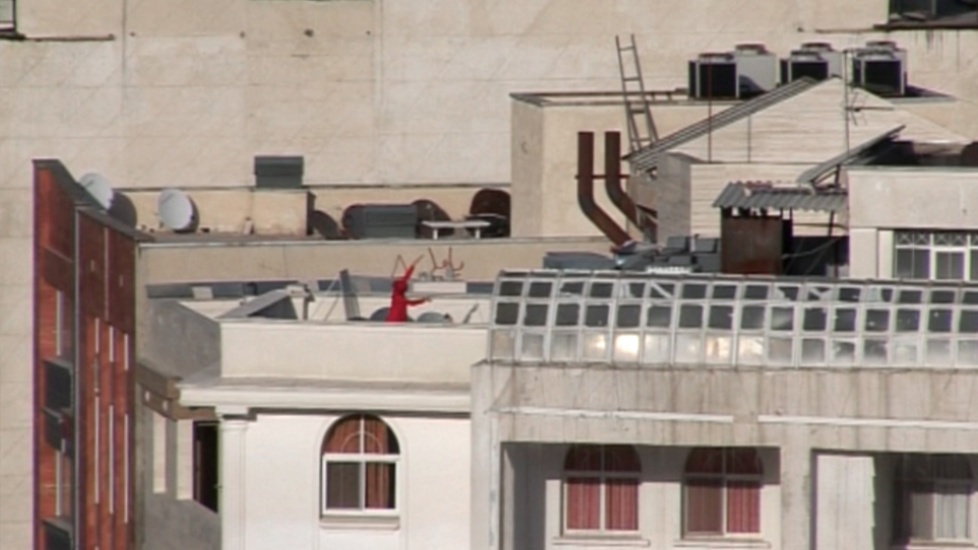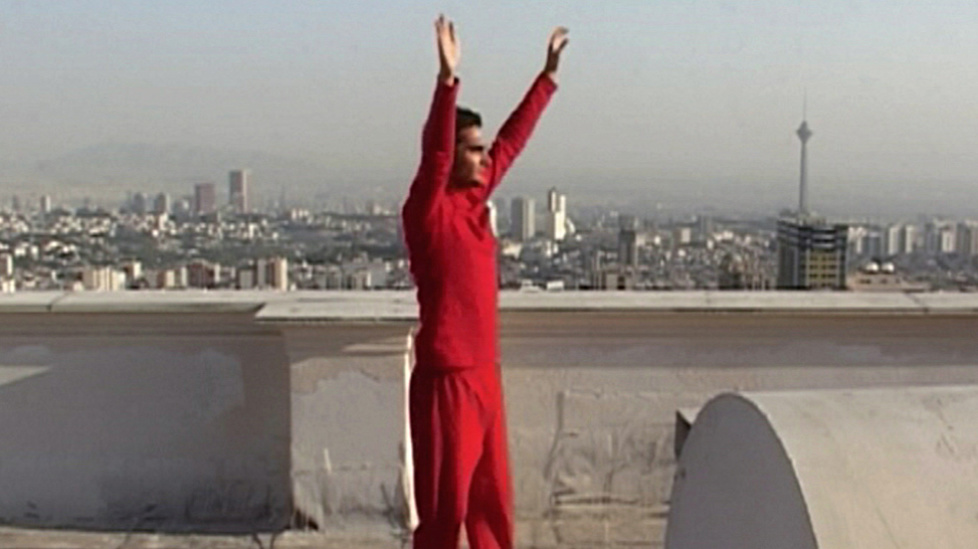Anahita Razmi
20.06.2013 - 01.09.2013
Stadtgalerie Saarbrücken Einladungskarte Anahita Razmi - Stadtgalerie Saarbrücken
Stadtgalerie Saarbrücken Einladungskarte Anahita Razmi - Stadtgalerie Saarbrücken
Stadtgalerie Saarbrücken Einladungskarte Anahita Razmi - Stadtgalerie Saarbrücken
For the artist, who was born in German, Iran is a place of her origins—but not her homeland—and at the same time her most important object of study. Her performance and video works testify to a self-confident and self-critical but always humorous view of the relationships and discrepancies between private and public reality.
Anahita Razmi (b. 1981 in Hamburg) has already received well-renowned awards, including recently the Emdash Award der Frieze Art Fair in London. Currently the artist is living and working Los Angeles, with support from the renowned MAK-Schindler Scholarship.
The Stadtgalerie Saarbrücken is presenting the first extensive exhibition of Anahita Razmi’s work, focusing on her most recent photographs and videos: In January 2013 the artist’s performance Re/Cut Piece in Dubai was a reenactment of the legendary performance Cut Piece by Yoko Ono (1964). Cut Piece was a process of laying bare, which took place in immediate exchange with the audience and made palpable the physical boundaries between viewers and artist, between attackers and victim, and also between male viewer-subject and woman as object. With Re/Cut Piece, Razmi transferred the original performance from its feminist context of the 1960s to contemporary Dubai.
Earlier, in 2011, Razmi made the performance Roof Piece (1973) by the American choreographer Trisha Brown the point of departure for a similar transfer. Whereas Brown turned the roofs of downtown Manhattan into a stage for improvised dance movements, Razmi used the political significance of Teheran’s roofscapes as the site of revolution in 2009 for her choreography. For reasons of safety, however, her Roof Piece Tehran could not be experienced as a live performance, as Trisha Brown’s piece could, but was first presented to the public by the artist as twelve video sequences from the piece at the Frieze Art Fair in London.
In her works I’ve Got It All (Too) (2008), Walking Drunk in High Shoes (2010), and HellterFuckingSkelter (2012–2013) by Tracey Emin or VB67 (2011) by Vanessa Beecroft, Razmi referred to early works by famous women artists. This effort to come to turns with legendary examples from recent art and film history runs through Razmi’s entire oeuvre, such as her latest video, Iranian Beauty, which is being shown at the Stadtgalerie Saarbrücken for the first time.
A catalog accompanies the exhibition: Swing State, ed. Kunstverein Hannover and Stadtgalerie Saarbrücken, 2013, 84 pp. (Ger./Eng.) with texts by Andrea Jahn, Ute Stuffer, and René Zechlin.



